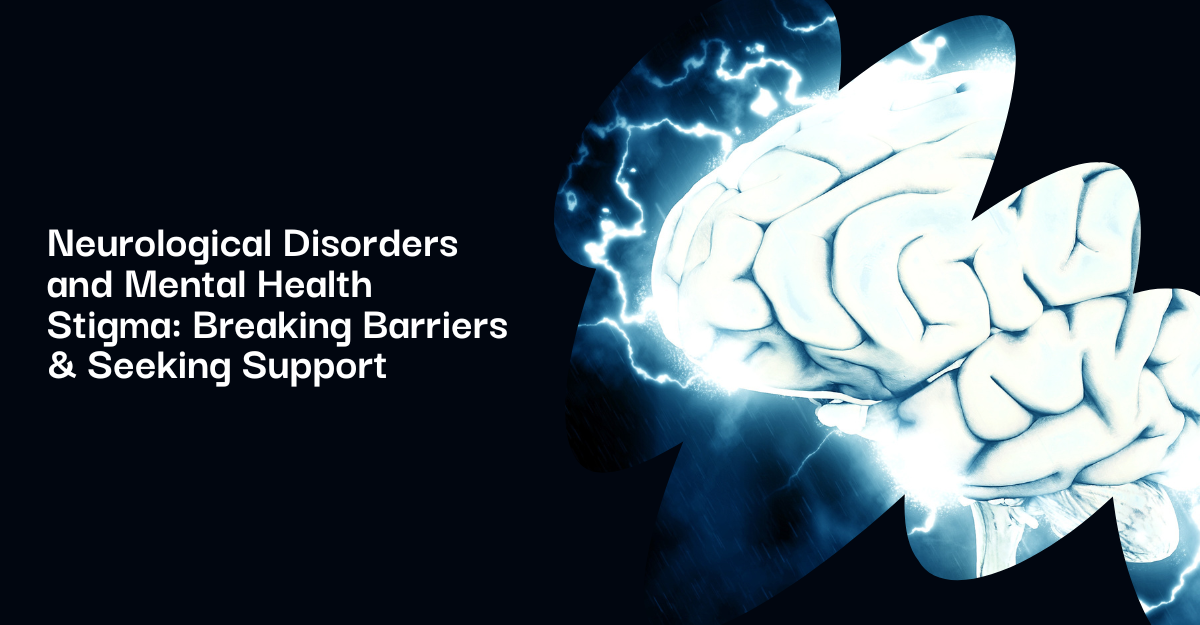Neurological disorders and mental health conditions are often accompanied by stigma, which can significantly impact individuals’ well-being and access to care. In this blog post, we will explore the intersection between neurological disorders, mental health stigma, and the importance of breaking down barriers to seek support. At Rukmini Healthcare, we are committed to providing compassionate care and advocating for mental health awareness.
Understanding the Intersection
The Link Between Neurological Disorders and Mental Health
Neurological disorders and mental health conditions are closely interconnected. Many neurological disorders, such as Alzheimer’s disease, Parkinson’s disease, and multiple sclerosis, can coexist with mental health issues like depression, anxiety, and psychosis. Additionally, the symptoms of neurological disorders can often manifest as behavioral or emotional disturbances, further complicating the diagnosis and treatment of mental health conditions.
The Impact of Stigma
The stigma surrounding neurological disorders and mental health conditions can have profound effects on individuals’ lives. It can lead to feelings of shame, isolation, and discrimination, preventing individuals from seeking help and accessing appropriate care. Stigma can also contribute to delays in diagnosis and treatment, exacerbating symptoms and reducing quality of life.
Breaking Down Barriers
Education and Awareness
Education and awareness are essential in breaking down stigma surrounding neurological disorders and mental health conditions. By providing accurate information and fostering open conversations, we can challenge misconceptions and promote understanding and empathy.
Advocacy and Support
Advocacy plays a crucial role in combating stigma and advocating for the rights and dignity of individuals with neurological disorders and mental health conditions. By supporting organizations and initiatives focused on mental health awareness and advocacy, we can work towards creating more inclusive and supportive communities.
Seeking Support
Importance of Seeking Help
It is essential for individuals experiencing neurological disorders or mental health conditions to seek help and support. Seeking timely intervention can lead to better outcomes and improved quality of life. It is okay to ask for help, and reaching out is the first step towards healing and recovery.
Access to Comprehensive Care
At Rukmini Healthcare, we understand the complex interplay between neurological disorders and mental health conditions. Our multidisciplinary team is dedicated to providing comprehensive care that addresses both the physical and emotional aspects of these conditions. We offer personalized treatment plans tailored to meet the unique needs of each individual.
The intersection between neurological disorders and mental health stigma presents significant challenges for individuals seeking support and care. However, by raising awareness, fostering understanding, and advocating for change, we can break down barriers and create a more supportive and inclusive environment for those affected. At Rukmini Healthcare, we are committed to providing compassionate care and supporting individuals on their journey to healing and recovery. Together, let us continue to challenge stigma, seek support, and prioritize mental health and well-being for all.
If you or a loved one is struggling with a neurological disorder or mental health condition, Rukmini Healthcare is here to help. Our compassionate team is committed to providing support, guidance, and comprehensive care to improve your quality of life. Don’t let stigma stand in the way of seeking help. Contact us today to schedule a consultation and take the first step towards healing and recovery.
Contact Information:
- Address: Biz Hub, First Floor, Infront Of Kalupada Seka, SCB Medical Rd, Ranihat, Cuttack, Odisha 753007
- Email: rukminihealthcare@gmail.com
- Phone: 94398 90891
Together, we can break down barriers, challenge stigma, and create a more supportive and inclusive environment for individuals living with neurological disorders and mental health conditions.

